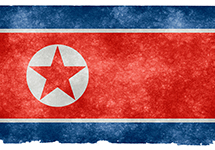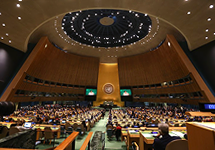
The situation on the Korean Peninsula is more dangerous than it has been at any time since early June 1950.

With multiple compromises on the perimeter, as well as poorly placed guard towers, the Shinkolobwe mine is not as secured as it should be.

Despite attempts to ban radiological weapons, challenges persist in achieving consensus, highlighting the necessity for global collaboration, legal restraints, nonproliferation commitments, and public education to deter their proliferation.

Outrider.org launched a podcast “The Reason We’re All Still Here,” with Jeffrey Lewis discussing nuclear weapons history and the citizens who chose to build a safer world.

Mr. Amir Hamzah Mohd Nasir, Assistant Secretary of the Multilateral Security Division of the Malaysian Ministry of Foreign Affairs visited CNS during the week of November 13, 2023.

CNS Research Fellow, Hyuk Kim, provides a unique video seminar for policymakers to reevaluate their policies towards North Korea.

When more than 100 delegations assembled this summer to review the nuclear Nonproliferation Treaty (NPT), expectations among most diplomats were low.